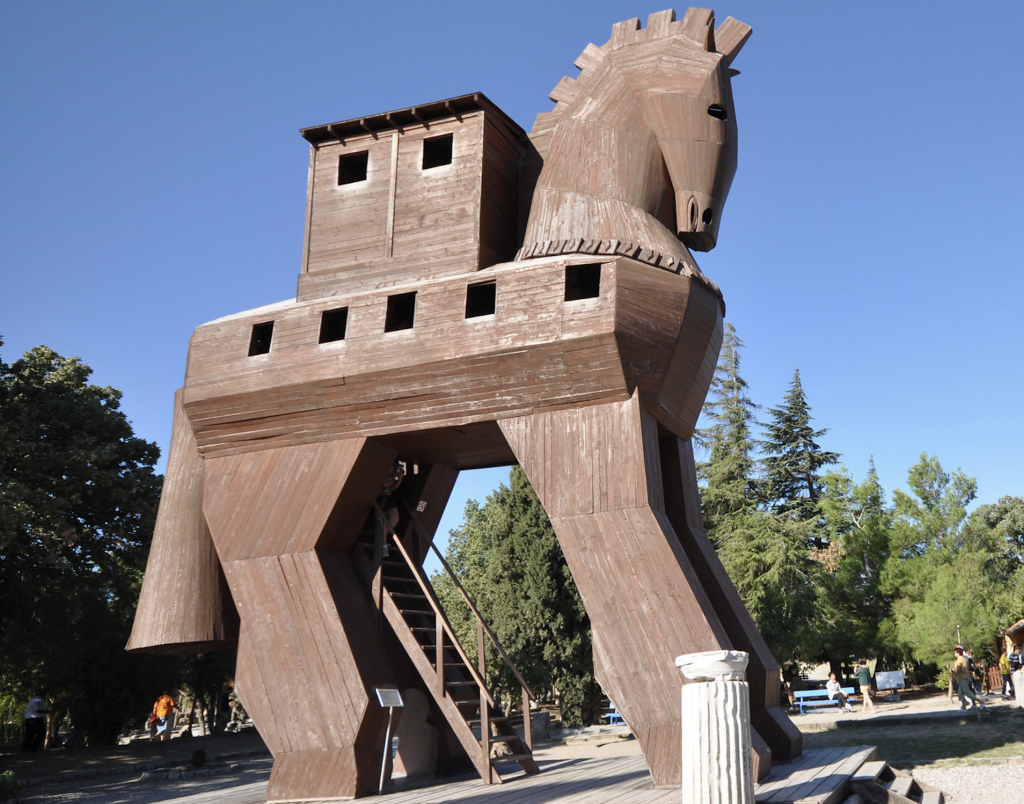The best way to protect the UK’s internal market and the devolution settlement is by collaboration and cooperation, writes Jeremy Miles MS.
You will undoubtedly have your own views on their intent, but there can be no denying the end result – the UK Government’s White Paper on the UK Internal Market is a Trojan horse.
Hidden beneath the silk glove of smarmy prose about the commitment to the highest standards, the glorious economic history of our islands and the huge value UK Ministers attach to working with the devolved nations, is an iron fist which threatens to smash devolution apart – and with it the United Kingdom itself.
I have always believed both in a well-functioning United Kingdom and the right to use the powers we have – to set environmental standards, to support economic development, to determine how we sustain our rural communities – to reflect the views and values of the people of Wales.
Until now those powers have been exercised within the context of the European Union. The European Union sets minimum standards in these areas – and others, such as workers’ rights – on the basis of negotiation and discussion between the member-states to make sure that responsible businesses are not undercut by competitors who are allowed to cut corners and act irresponsibly.
The rules are enforced independently of any one Government. Those minimum standards have for the most part been warmly supported by our employers’ organisations and our trades unions.
So after the 2016 referendum we were amongst the first to recognise that, across the UK, we needed to put in place similar minimum standards to replace those of the EU. We put forward the idea of Common Frameworks – agreements freely entered into by all four nations – to allow us each to regulate in a way that reflected the specific needs and values of our countries while not tearing up the level playing field.
“If the UK agrees a free trade agreement with the USA, which allows hormone-injected beef… Wales could not use its powers to stop it being sold in supermarkets here.”
For three years, we have worked patiently with the UK Government and the other devolved administrations to develop these Common Frameworks – slowly, but mostly successfully – with a view to putting them before the Senedd and the other Parliaments for their endorsement.
The proposals in the UK Government’s White Paper drive a coach and horses through that common endeavour.
It’s central proposal – legislation to impose an automatic commitment of mutual recognition of each others’ regulations without any binding guarantee of minimum standards – is at best, a sledgehammer to crack a nut; at worst, it is an attempt to hollow out the powers of the Senedd.
While the proposals may not technically prevent Wales from creating our own policies and regulations in future, the fact that Wales would have to, for example, accept products of a lower standard in future, could seriously affect the competitiveness of Welsh business.
Take meat production as an example – at the moment, the UK and the EU have some of the highest standards of animal welfare in livestock and food production in the world. We want this to continue – we do not want any deregulation and we do not want standards to fall.
But the UK Government’s mutual recognition model, doesn’t just apply to goods and services, produced within the UK – it would also cover goods from abroad, which are legally sold in any part of the UK.
If the UK agrees a free trade agreement with the USA, which allows hormone-injected beef or chlorine-washed chicken into the UK and Parliament changes the law to allow it to be sold in England; under the proposals set out in the White Paper, Wales could not use its powers to stop it being sold in supermarkets here.
“The proposals in this White Paper could prevent us from introducing new regulations to increase the sustainability of packaging for all goods sold in Wales.”
And this is not the end of it. The principle of non-discrimination, which will also be put in law – appears to mean Wales could not use devolved powers over labelling to insist the beef was clearly labelled as containing hormones or the chicken was washed in chlorine.
Of course, the UK Government in the final analysis already possesses powers to force the Senedd to change our laws to conform to international agreements – but if these proposals go through, they would not have to risk such a headlong conflict on this sort of subject where public opinion would almost certainly be on our side.
To take another example – we are rightly proud of our approach to waste and resource efficiency – our statutory recycling rates have helped propel us to the top of the world recycling chart. But the proposals in this White Paper could prevent us from introducing new regulations to increase the sustainability of packaging for all goods sold in Wales.
Innovative. Informed. Independent.
Your support can help us make Wales better.
It would also restrain our ability to use our economic development powers – which could not be more important in this age of coronavirus. The White Paper proposes to take back control of what the UK Government calls “the subsidy regime”, replacing it with a system of controlling grants and loans to businesses, which is decided in Whitehall and policed for fairness by a UK Government department, which has responsibility for promoting business in England!
We have worked hard to ensure that leaving the EU does not undermine trade within the UK.
We believe the best way to protect the UK’s internal market is by collaboration and cooperation, not by unilateral imposition. And the best way to save the Union is to embrace and reform devolution – not undermine it.
All articles published on the welsh agenda are subject to IWA’s disclaimer.





